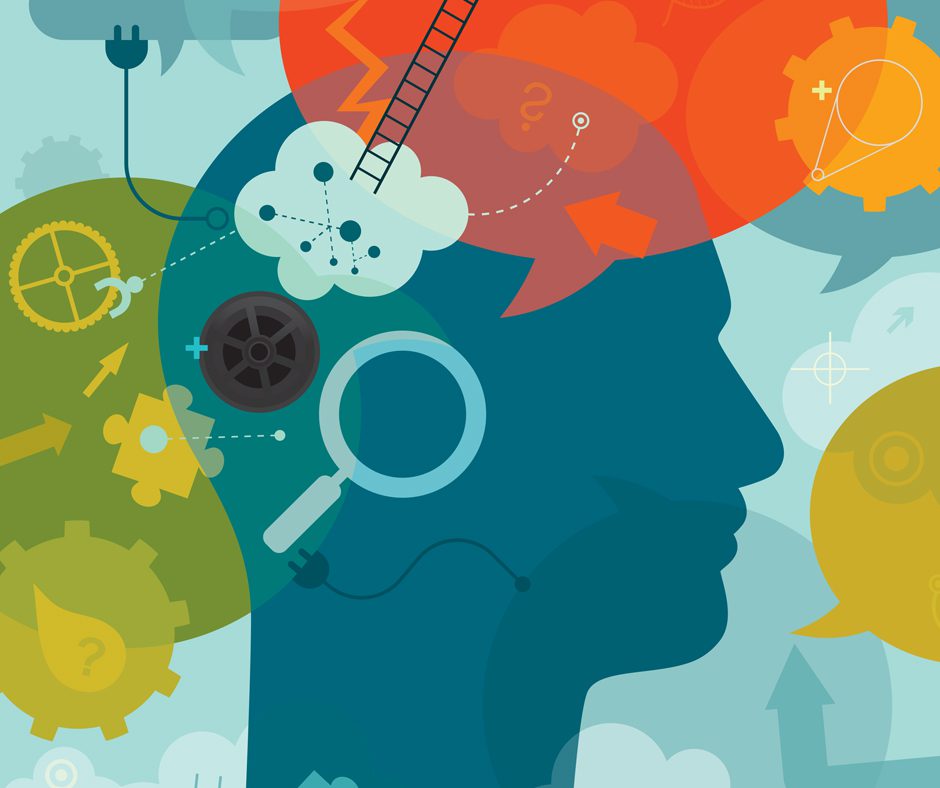Memory and the Aging Brain.
We’ve all been there. Momentarily forgetting someone’s name. Misplacing our car keys. Having trouble recalling what we did just last week. Then suddenly, an unwanted thought creeps in: Are those symptoms of Alzheimer’s? Could I be in the beginning stages of dementia? The reality is, we all lead busy lives and try to do too much at once, which can affect our ability to retain and recall information. It’s also common to forget things as we age.
But how does age negatively affect memory? What amount of natural memory loss should we expect with age? Are there any positive impacts that happen to our aging brain?
This post will look at memory and aging to help you determine what’s a big deal and what’s normal.
Impacts of Aging on the Brain
Not everything that happens to the brain as a result of aging is bad. In fact, there’s a lot that doesn’t noticeably change and even some mental benefits of growing older. Here’s a summation of some of what could change and what probably won’t.
What could decline:
- Sensory input. It begins to take more time to process sensory information, resulting in slower reaction time/reflexes.
- Learning effort. To learn something new could take more time and require more effort.
- Recall. Both episodic memory — the who, what and when of an event — and longer-term memory loss happens somewhat with age.
What doesn’t change:
- Learning ability. While it may take longer to learn something new, learning can continue throughout your life, and is strongly influenced by your interests, motivations and activity levels.
- Conceptualizing. Semantic memory — the ability to recall concepts and general facts not related to specific experiences — stays the same or could improve. (Semantic memory also includes vocabulary and knowledge of language.)
- Know how. Procedural memory — how to do things — typically stays the same.
- Recognition. The ability to match stored information with what’s going on around you changes very little over time.
Potential positive impacts:
- Wisdom. Your brain gets better at making connections between distant brain areas. This allows your brain to better detect relationships between diverse sources of information and see the bigger picture.
- Creativity. There’s no upper age limit to being able to create.
Memory Maintenance and Improvement Tips
Scientists have identified ways to minimize age-related changes and improve everyday memory function. Here are some tips:
- Socialize. Participating in social and community activities can help improve your mood and memory function.
- Activity. Exercises, such as brisk walking, can help boost and maintain brain function.
- Attitude. Avoid ageist stereotypes about memory decline. Studies have shown that having positive beliefs about aging can improve older adults’ memory performance.
- Confidence. Just because you have a little memory lapse, don’t assume you have dementia.
The stress could make your lapses worse. - Focus. Avoid distractions, ranging from trying to do several things at once to loud background noises. It’s hard to remember new information when you’re distracted.
When to Seek Help
Memory lapses typically qualify as normal if they don’t affect your everyday life. You can easily adapt to these types of memory problems by making lists, establishing routines, using associations and employing other memory aids.
Here are some examples from Harvard Medical School of normal aging and when you should probably talk with your doctor.
Probably Normal Aging
- You sometimes search for words.
- It takes you a little longer than normal to complete tasks at work, but you can still finish them.
- You can’t find your keys.
- You have to focus a little more on conversations in a noisy environment.
- You lose your temper a little more easily in an argument.
- You misplace your house keys from time to time.
- You forget what you ate for dinner last night, but you remember as soon as someone gives you a hint.
- You have trouble deciding which entree to choose at a restaurant, but ultimately make your choice.
- You drive a little slower than you used to.
- It takes you a little longer to answer the phone.
Talk to Your Doctor
- You use the wrong words — “stove” when you mean “table.”
- You struggle to perform your job responsibilities. You have trouble following a series of steps or instructions.
- You can’t remember how to drive.
- You can’t follow conversations at all when there is background noise or other distractions.
- You scream at your partner often, and for no reason.
- You always seem to be losing your keys and other everyday items, and they turn up in strange places — such as in the refrigerator.
- You forget what you ate for dinner last night and no reminders can jog your memory.
- You find it impossible to decide what to eat, choose what to wear, or make other daily decisions.
- You’re very slow to react behind the wheel, and you often miss stops signs and red lights.
- You don’t recognize when the phone is ringing, and that you need to answer it.
Trusted Resource
If you think you’re seeing the effects of memory and aging in yourself or a loved one, it’s a good idea to talk with your family physician. If help is needed, choosing a senior living community like Green Hills Manor can make a world of difference.
Our memory care features an innovative person-centered program that is grounded in the belief that the abilities that remain are far more important than those that are lost. The diversity of our planned mental, physical and spiritual activities encourages residents to engage in activities they enjoy, despite increasing impairments. To learn more or to talk about how we can help you or your loved one, call us at 484-268-2201.



